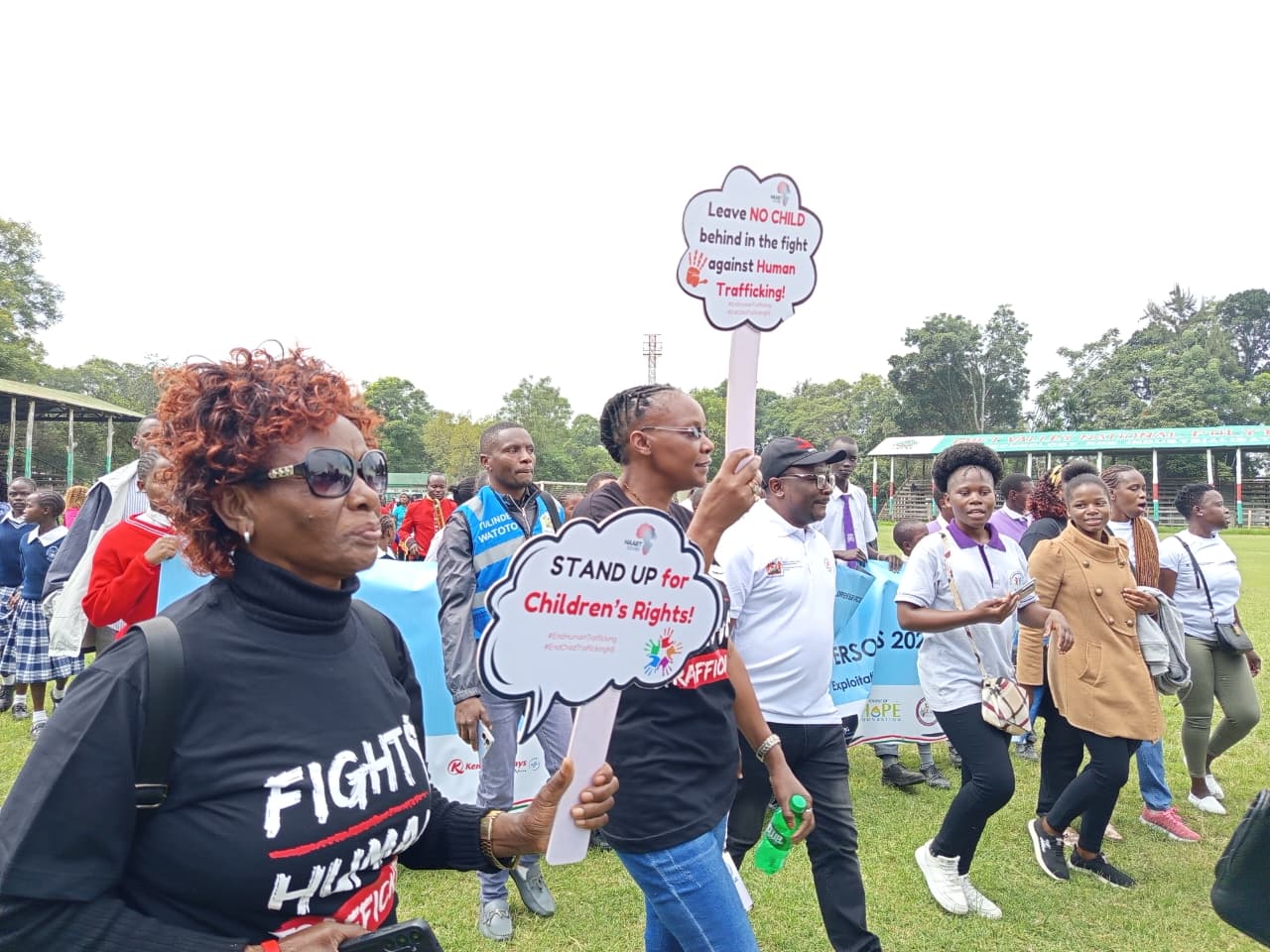 Members of public participating during the World Day Against Trafficking in Persons in ASK grounds, Nakuru./HANDOUT
Members of public participating during the World Day Against Trafficking in Persons in ASK grounds, Nakuru./HANDOUT
Kenya on Wednesday marked the World Day Against Trafficking in Persons with a national commemoration held in Nakuru County, a region identified as a critical hub for human trafficking.
The event brought together government officials, civil society, and international agencies in a united call to dismantle trafficking networks and protect vulnerable communities.
The event, led by the State Department for Children Services, ran under the theme “Human Trafficking is an Organised Crime: End the Exploitation.”
Nakuru was chosen for its strategic position as an origin, transit, and destination county for trafficking, alongside Trans Nzoia, Kiambu, Garissa, and Taita Taveta.
In her keynote address, Principal Secretary Carren Ageng’o emphasized that trafficking in persons is a highly organized crime that thrives on deception and preys on desperation.
“Human trafficking lures victims with promises of better opportunities but traps them in modern slavery,” she said.
“We must recognise this as organised crime and unite to end the exploitation.”
Ageng’o urged Kenyans to take caution when seeking jobs abroad by verifying opportunities through accredited agencies and securing proper documentation, including contracts and visas.
According to a 2022 report by the National Crime Research Centre, children account for nearly half of domestic trafficking victims.
Adults make up 60 percent of internal trafficking cases and up to 80 percent of cross-border cases. Most victims are trafficked for forced labour, sexual exploitation, or emerging forms of exploitation like forced online scamming in Southeast Asia.
The State Department outlined its progress in the fight against trafficking. This includes the rescue of 153 Kenyans trafficked to Myanmar, training over 700 officers on trafficking response, and supporting 35 survivors to rebuild their lives through small businesses.
A government-run shelter has also been established to house and rehabilitate victims. The commemoration also highlighted the diverse and evolving nature of trafficking.
Authorities reported cases involving child labour in bars and farms, forced begging, suspected organ harvesting, and child radicalization.
The push factors behind trafficking include poverty, unemployment, family dysfunction, and climate-related displacement. The Principal Secretary commended the resilience of survivors who are now using their voices to advocate against trafficking.
“Their courage is a powerful tool in preventing others from becoming victims,” she said.
Stakeholders urged the public to report suspected trafficking cases to the relevant authorities, reaffirming their commitment to prosecuting offenders and protecting victims.
The World Day Against Trafficking in Persons is observed every July 30 to raise awareness about the global trafficking crisis and rally action to prevent exploitation and support victims.











